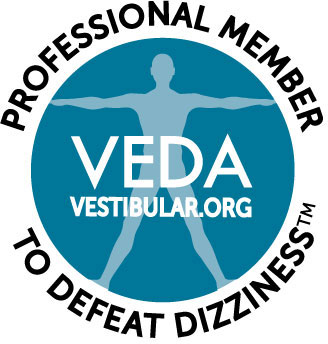Most of us are familiar with a concussion – a mild brain injury that can arise from a blow to the head. If you’ve recently sustained one yourself as a result of a sports injury, car accident or some other cause, there’s the chance that you may still be experiencing symptoms like headaches, migraines, dizziness and nausea. While for many people these symptoms are temporary, in some cases, they can persist for months or even years. Some who have suffered a concussion may even have changes to their vision, since a concussion can change the way that visual cues are interpreted by the brain.

Symptoms of Post-Concussive Syndrome
Symptoms such as these that linger much longer than they should are known as post-concussive syndrome. This condition can occur even if you weren’t knocked out and your initial injury didn’t seem severe. Along with those mentioned previously, the full range of symptoms of post-concussive syndrome also includes the following:
- Lack of coordination
- Loss of balance
- Feeling disoriented
- Irritability
- Fatigue
- Impaired vision
- Anxiety
- Insomnia
- Sensitivity to noise and light
When to See a Doctor
If you’ve recently sustained a head injury that has caused you to experience confusion or memory loss, it’s best to see a doctor to be on the safe side. If you play a sport, avoid returning until you’ve consulted with a physician, and the sooner the better. The doctors at the Neuro Visual Center of New York are adept at helping patients who’ve experienced a concussion that has led to vision problems. Dr. Cheryl Israeloff and Dr. Marissa Zimmerman are specially trained in treating binocular vision dysfunction (BVD), a misalignment of the eyes which can result from a head injury, among other things. They work with patients to develop effective treatment methods to address the visual problems they may be experiencing, such as headaches, blurred or double vision, disorientation, sensitivity to light and an unbalanced gait.
Schedule an Appointment at the Neuro Visual Center of New York
If you have been experiencing symptoms for more than three months without relief and think you may have post-concussive syndrome, our specialists can prescribe aligning prismatic lenses that will effectively treat BVD and other binocular vision issues. In this way, we can greatly reduce your post-concussive symptoms without the need for long-term vision therapy, which can be very expensive. To learn more about these conditions and our treatment methods, give us a call today at (516) 224-4888.






Hi my name is Denise and on Feb 17th 2015 a lg work van crossed over and hit me front on. The impact also spun me sideways up into the snow bank afterward. I lost consciousness but don’t know how long I was out before a retired nurse who was passing by crawled into the passenger side and stayed with me until the ambulance arrived. I have to be cut out of my SUV, I don’t need to tell you it’s been a long hard year of working on recovery. I am still working on my issues of PCS as well as other things but I’m overwhelmed with my vision issues. As I type this email to you I have 2 pairs of prism glasses, one on my eyes for reading and one on my head for distance to help me as soon as I look up. I’ve had 202 medical appointments in 1 year (as many as 25 per month) I’m growing weary. My question to you is do you know of anyone I could see in Ontario that understands PCS who can help Me. I’m very tired of wasting the little energy I have (and money) and still not getting the help I need. I realize I am probably grasping at straws with this email since we live in different countries but I read your post and I keep thinking Gosh I wish I lived in New York because if I did I’d make sur I got in to see you.
Hi Denise,
First I am so sorry that you are going through this. PCS is so poorly understood by many in the medical community. I wish that I had a colleague in Canada. Currently, there are only a handful of us trained in the US in Dr. Feinberg’s technique. Before me everyone had to travel to Michigan. My best advice would be to wear an eye patch when you get very dizzy or the headache becomes to much to bear. Taking away the binocular vision should help you feel better. I so wish you could make it to New York. All the best.